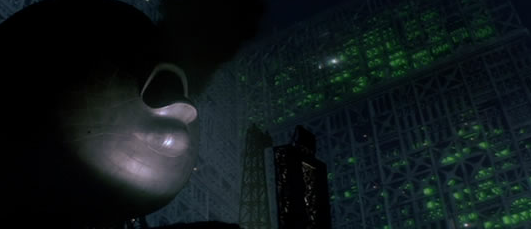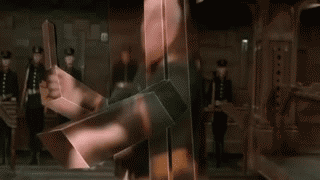
Based on the best-selling novel by Frank Herbert, Dune has been widely regarded by many as the one book that would be impossible to effectively adapt into film. Published in 1965, Dune became an instant best-seller and a staple of the science fiction genre; which meant that efforts to adapt it into cinema began almost instantly.
The first serious attempt to adapt Dune began in 1973, when a consortium of French filmmakers and producers hired on Alejandro Jodorowsky. Despite a great deal of enthusiasm and a star-studded cast, the story quickly ballooned into a 10-14 hour epic and the funding quickly dried up.
The next attempt occured in 1976, when Dino De Laurentiis bought the film rights from the consortium. He began looking for directors, with considerations given to Ridley Scott (who thought to hire on H.R. Giger and split the book into two films) before finally settling on David Lynch, whose vision was eventually manipulated to such a degree that he would later deny the film entirely.
***
- Directed by David Lynch (credited to Alan Smithee)
- A Dino De Laurentiis Production
- MPAA Rating: PG-13
- Running Time: 136 Minutes (Theatrical Cut)
***
SUMMARY
How does one summarize Dune? This is the question that I have been struggling with since I chose to review this film. Both the film and the book it is based on are notoriously plot-heavy, with several plot threads and surreal elements (as befits David Lynch). Despite this, I must give an earnest attempt.
In the distant future, humanity has created a vast space empire, ruled by House Corrino's Padishah Emperor. The key to their empire's survival lies with the spice melange, an addictive drug which extends life, provides special abilities and is produced on a single planet, Arakis (also known as Dune), ensuring whichever family holds it a virtual monopoly on the industry.
In order to maintain control, the Emperor initiates a plot with House Harkonnen, led by the monstrous Baron Vladimir Harkonnen, to transfer control of Arrakis from House Harkonnen to their ancient rival, House Atreides, led by Duke Leto Atreides, in order to drive them into conflict and ensure House Atreides' destruction.
All the while, ancient powers and orders have taken an interest in Duke Leto's son and heir, Paul Atreides, who some believe to be at the center of several prophecies and holds the potential to upend the entire power structure of the galaxy.
***
REVIEW
Dune is a absolutely stunning movie to view, as is to be expected of a David Lynch film. But to be honest, beyond the visuals and soundtrack, the film is kind of a mess to watch. The characters lack much of the subtleties and nuisance of the novel and the story can run so surreal that it is almost impossible to follow at some points. The best way I can describe this film is a hot mess. A beautiful, enjoyably bad mess.
VISUALS - 9/10
As with any film by David Lynch, the cinematography is absolutely exemplary. Lynch's work is synonymous with magnificently surreal visual elements, even at the expense of narrative coherence (Mulholland Drive just as an example) and Dune is no exception.
The industrial world of Geidi Prime is extraordinary to witness the first time, as Lynch's use of scale creates something larger than life. Everything regarding the Harkonnen's evokes a sense of horror and grotesqueness that is quintessentially Lynch. The bleakness of Arrakis and the sheer scale of the sand worms also create an iconic sight that stays with the viewer long after the film concludes.
However, there is a limit of budget and unfortunately, Dune precedes the prevalence of CGI by about 10 years and it really shows. Many interior scenes, such as on Calladan and Arrakis seem incredibly cramped and Star Trek quality and effects like the personal shields look straight out of Tron. There is a part of me that genuinely wishes to see how our modern CGI could be used to translate Herbert's vision.
That aside, for what he had available to him; Lynch creates an extraordinary vision of the distant surreal future.
The industrial world of Geidi Prime is extraordinary to witness the first time, as Lynch's use of scale creates something larger than life. Everything regarding the Harkonnen's evokes a sense of horror and grotesqueness that is quintessentially Lynch. The bleakness of Arrakis and the sheer scale of the sand worms also create an iconic sight that stays with the viewer long after the film concludes.
 |
| The industrial world of Geidi Prime, Home of House Harkonnen |
 |
| The Personal Shield, brought to you by Tron |
SOUNDTRACK - 7/10
Toto.The soundtrack of Dune is composed by the band Toto. You know? The "Africa" guys?
Yeah, these guys are the ones behind the music of the film. When I think of a science fiction or fantasy epic, I expect orchestral pieces like from the Lord of the Rings or Star Wars franchise. And while, I do think that a more traditional or orchestral soundtrack would perhaps fit better with the setting, the more surreal or psychedelic soundtrack does give this film a more recognized identity.
Not much more to say to be honest, its fun to listen to and certainly memorable in the moment; but not much more to it.
CHARACTERS - 5/10
While the visuals and the soundtrack are iconic and superb, the characters are kind of hit-and-miss. In the novel, the characters possess a subtlety and political nuisance that wouldn't be amiss in Game of Thrones. Characters like Baron Harkonnen and Duke Leto have comparable elements to Tywin Lannister and Eddard Stark. Very little of this makes it into Lynch's vision.
 |
| Vladimir Harkonnen: The Tywin Lannister of the Dune franchise |
Some characters do well on the sheer skill and talent of their performers. Gurney Halleck is done wonderfully by Patrick Stewart, even if he has little to do, and Max von Sidow as Dr. Kynes is extraordinary for the short time that he is on.
Kenneth McMillan, who plays the baron, just chews all the scenery. All of the political nuisance is lost behind body horror and his enjoyably hammy performance.
 |
| Vladimir Harkonnen, The man in desperate need of ProActive. |
On the other side, Sting, who plays Baron Harkonnen's nephew Fayd, and Kyle MacLachlan, who plays Paul Atreides, leave almost no impact at all. They feel so out of place or disinterested in the world around them, and while some of that is absolutely a result of the surreal delivery of the narrative; quite a bit also needs to be placed in how they delivered the performance altogether.
STORY - 3/10
Dune is widely regarded as a novel impossible to effectively adapt as a film. This is due to the sheer complexity of the narrative, the heavy philosophical and religious elements of the plot and subplots, and the massive cast of characters.
Thinking about the scale that a Dune adaptation would have to achieve to be a proper adaptation, I feel that film is the least effective medium. The story would work much better as a television series in the style of Game of Thrones, where the amount of time and the freedom of a mature audience could give the filmmakers an amount of time similar to the Jodorowsky version of the film, allowing it to truly reach the heights of the original series.
 |
| Concept Art from Jodorowsky's Dune, the film that could have been. |
That being said, the version Lynch gave us is probably the best that could be done in the time allotted and with the technology available, and even that is something of a hot mess. The story elements are often hidden behind difficult dialog and sudden dives into the minds of the characters, with constant voice-overs by the character in question.
When the voice-overs aren't constantly interrupting the action, sudden moments of surreal visuals (dripping water puddles, sudden faces of characters staring into the void, etc.) make it oftentimes difficult to follow or keep focus, which does no favors to a story which has already had to remove much of the nuisance and subtext of the original novel.
So for all the quality behind Lynch's visual style, that style ironically attacks and diminishes the narrative which forms the core of the original novel and makes it so painful to watch when one imagines what could have been.
FINAL THOUGHTS
Beautiful to look at but often painful to follow narratively, it is no wonder that David Lynch dropped his name from the finished project. The film is horrifically beautiful visually and a horror story narratively. I can really only recommend this film if you wish to see a visually interesting film or you have a genuine passion for Lynch's overall work and style.
I'm fascinated to see how the 2020 version of Dune will turn out and see if it will fall into the same pitfalls as this version, if it will fall into all new ones, or if it should finally overcome the generally-held belief that Frank Herbert's science-fiction masterpiece is impossible to adapt.
VISUALS
- 9/10
SOUNDTRACK
- 7/10
CHARACTERS
- 5/10
STORY
- 3/10

No comments:
Post a Comment